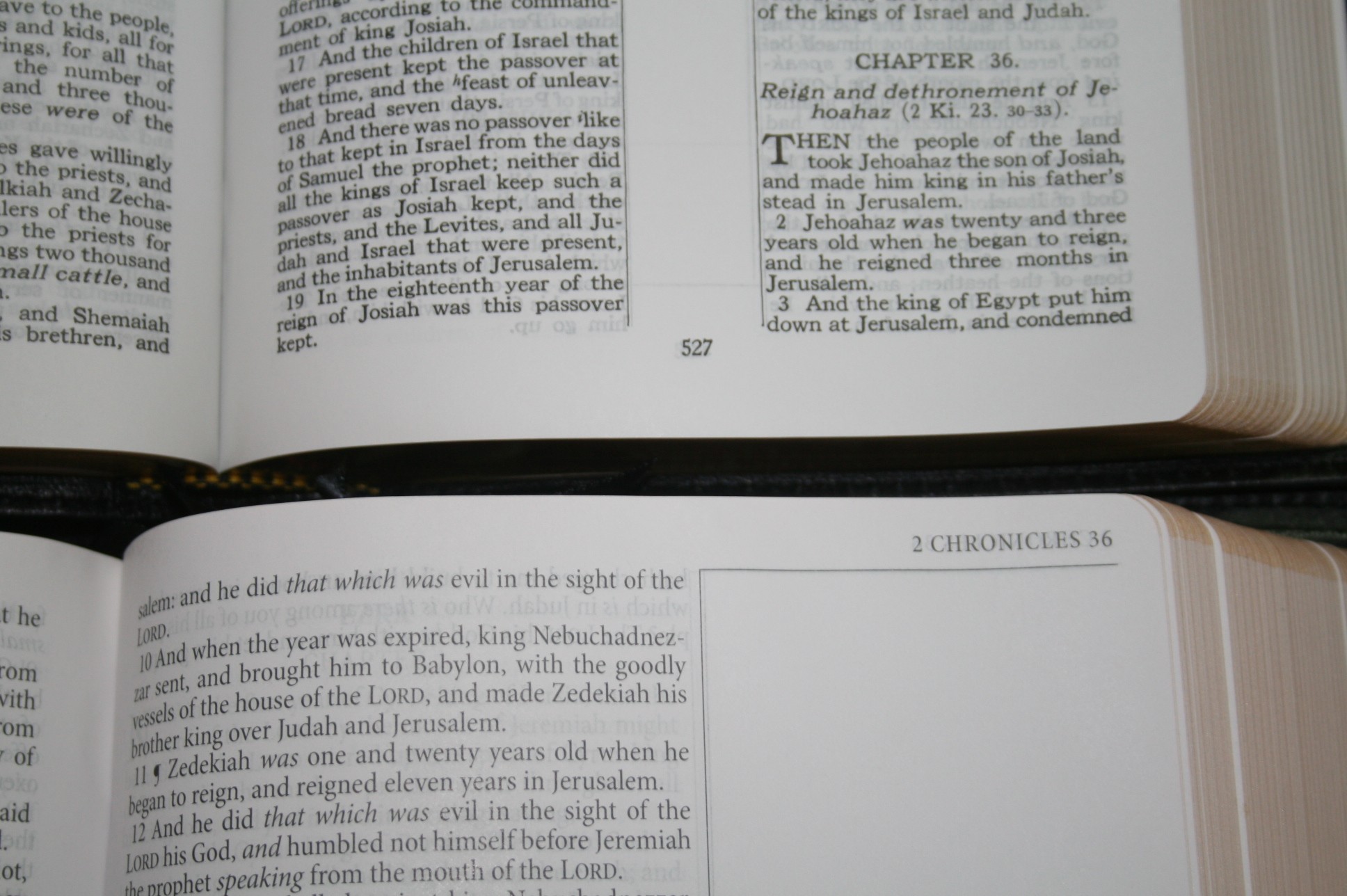
If, further, we regard it as most probable that Ezra died before 431 B.C., and that this passage in question was not wholly written by him, this does not disprove the theory (see the introduction to Chronicles), that Ezra was the author of Chronicles. Assuming the average of a generation to be 20 years in the East, the genealogy of the present chapter, drawn out according to the Hebrew text, does not descend below about 410 B.C., and thus falls within the probable lifetime of Nehemiah.


The question of the proper arrangement of the genealogy of the descendants of Zerubbabel 1 Chronicles 3:19-24 is important in its bearing on the interesting point of the time at which the canon of the Old Testament was closed. The Syriac anti Arabic versions supply “Azariah” between Neariah and Shaphat. Six - There are only five names in the Hebrew text. Anani is reckoned by other Jews a name of the Messiah, who is said to come in the clouds of heaven, which "Anani" signifies see Gill on Daniel 7:13.

Zerubbabel, Hananiah, Jesaiah, Rephaiah, Arnan, Obadiah, Shecaniah, Shemaiah, Neariah, Elioenai, Anani in Matthew thus, "Zerubbabel, Abiud, Eliakim, Azor, Sadoc, Achim, Eliud, Eleazar, Matthan, Jacob, Joseph" the difference in names may be accounted for by their having two names and it is remarkable that the Targum makes Anani to be the King Messiah, who was to be revealed which, though it makes one generation less to his time, yet plainly shows that the Jews expected the Messiah to come at the end of this genealogy, and about the time Jesus the true Messiah did. From hence to the end of the chapter, the genealogy is carried on from the captivity of Babylon, out of which Zerubbabel came, to the coming of Christ and if Ezra was the writer of this book, as is generally thought, who was contemporary with Zerubbabel, this account must be written by another hand: and it may be observed, that it is carried on in the same number of generations as in Matthew and here it stands thus: Here arises a difficulty, since elsewhere Zerubbabel is said to be the son of Shealtiel, Haggai 1:1 some think this is not the same Zerubbabel here as there so Grotius but I see no reason for that but this difficulty may be removed by observing, that if Pedaiah was a son of Salathiel, as Kimchi thinks, then Zerubbabel, being his grandson, may be called his son, as grandsons are sometimes called sons in Scripture or rather, Salathiel, having no children, adopted Zerubbabel, his brother's son, and made him successor in the government so that he was the son of Pedaiah by birth, and of Salathiel by adoption or else Salathiel dying without children, his brother Pedaiah, according to the law, married his widow, and by her had Zerubbabel, who was the proper son of Pedaiah, and the legal son of Salathiel:Īnd the sons of Zerubbabel Meshullam: who is called Abiud, Matthew 1:13 another son of his, with their father, is mentioned in this verse, and five more in the next. Concordances: - Nave's Topical Bible - Bariah Hattush Igeal Neariah Shaphat Shechaniah Shemaiah Thompson Chain Reference - Genealogies of Christ ĭictionaries: - American Tract Society Bible Dictionary - Genealogy Shaphat Easton Bible Dictionary - Bariah Hattush Igal Shecaniah Fausset Bible Dictionary - Bariah Chronicles, the Books of Genealogy Hattush Igeal Jaddua Neariah Shaphat Shechaniah Shemaiah Holman Bible Dictionary - Hattush Igal Igeal Neariah Shaphat Shemaiah Hastings' Dictionary of the Bible - Attus Bariah Chronicles, I Generation Hattush Igal Neariah Shaphat Shecaniah Shemaiah Morrish Bible Dictionary - Bariah Chronicles, Books of the Hattush Igeal Neariah Shaphat Shechaniah Shemaiah The Hawker's Poor Man's Concordance And Dictionary - Neariah Smith Bible Dictionary - Bari'ah Hat'tuph Ig'e-Al Ne-Ari'ah Sha'phat Shechani'ah Įncyclopedias: - International Standard Bible Encyclopedia - Ancient Bariah Chronicles, Books of Genealogy Hattush Igal Igeal Neariah Shaphat Shecaniah Shemaiah Text of the Old Testament The Jewish Encyclopedia - Exilarch Hattush Īnd the sons of Pedaiah were, Zerubbabel and Shimei.


 0 kommentar(er)
0 kommentar(er)
